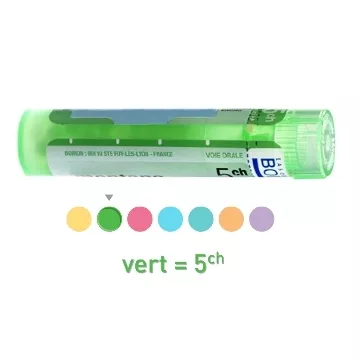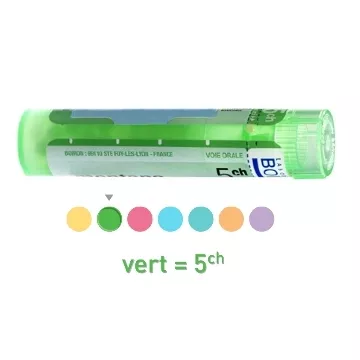






What is asthmatic dyspnea and how can we recognize it?
Asthmatic dyspnea is a key symptom of asthma, characterized by a sensation of difficulty in breathing or shortness of breath. It generally occurs in response to an exacerbated airway reaction to various irritants or allergens. This medical condition manifests itself as a reduction in bronchial caliber due to three main factors: bronchial inflammation, spasm of bronchial smooth muscle and excessive mucus production.
Those affected may experience chest tightness and wheezing, especially during physical exertion or at night. Recognizing these signs early is crucial for effective management and preventing potential complications such as severe asthma attacks.
What are the common causes of asthmatic dyspnoea?
Asthmatic dyspnoea can be triggered by a number of environmental and personal factors. Among the most common are
Identifying specific triggers is a key step in reducing the frequency and severity of dyspnea episodes.
How can asthmatic dyspnoea be effectively managed?
Managing asthmatic dyspnea is based on a personalized treatment plan, drawn up in collaboration with a healthcare professional. The following approaches are fundamental:
What innovations are there in the treatment of asthmatic dyspnea?
The field of asthma and asthmatic dyspnea treatment is constantly evolving, with significant advances in therapeutic options and inhalation devices. Biological treatments, targeting specific molecules involved in asthmatic inflammation, represent a major advance for patients suffering from severe forms of the disease. What's more, the ongoing improvement of inhalers ensures more effective and easier delivery of medication, improving adherence to treatment and overall efficacy.
What role does diet play in the management of asthmatic dyspnoea?
Diet can influence asthma symptoms in a number of ways. A balanced diet rich in fruit, vegetables and omega-3s can help reduce systemic inflammation, a key factor in asthma exacerbation. It is advisable to avoid allergy-prone foods, which can vary from person to person, such as nuts, dairy products and eggs. In addition, maintaining a healthy body weight can reduce the severity of symptoms. Monitoring sulfite intake, present in certain preserved foods and beverages, is also important as they can trigger dyspnea in some individuals.
How does air pollution affect asthma sufferers?
Air pollution is a major irritant for asthma sufferers. Fine particles (PM2.5 and PM10), sulfur dioxide, carbon monoxide and ozone, present in vehicle smoke and industrial emissions, can penetrate deep into the airways and exacerbate asthma symptoms, particularly dyspnea. We recommend avoiding outdoor activities on days of high pollution, and using air purifiers to maintain indoor air quality.
How important is exercise for people with asthmatic dyspnea?
Although exercise can be a trigger for asthmatic dyspnea, it is crucial for overall health and well-being. Regular physical activity improves lung function and cardiovascular capacity. For people with asthma, it's essential to choose low-impact activities and take precautions, such as using preventive medication and choosing controlled environments for exercise. Progressive warming-up and cooling-down are also important to avoid exacerbated symptoms.
Are there any effective natural treatments for asthmatic dyspnoea?
Some natural remedies can complement traditional medical treatment of asthma, but should never replace it. Studies have shown that practices such as yoga and deep breathing can help manage stress and improve breathing. The use of supplements such as vitamin D or plant extracts such as ginger or turmeric can also have beneficial effects, thanks to their anti-inflammatory properties. However, it is crucial to consult a healthcare professional before adopting any natural treatment.
How does stress affect asthmatic dyspnoea, and how can it be managed?
Stress and anxiety can trigger or aggravate episodes of asthmatic dyspnea by causing respiratory muscles to contract and increasing inflammation. Stress management is therefore an essential aspect of asthma control. Relaxation techniques such as meditation, controlled breathing and yoga can be very beneficial. Maintaining a regular sleep routine and engaging in recreational activities that promote psychological well-being are also recommended.